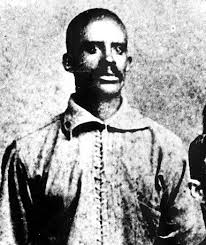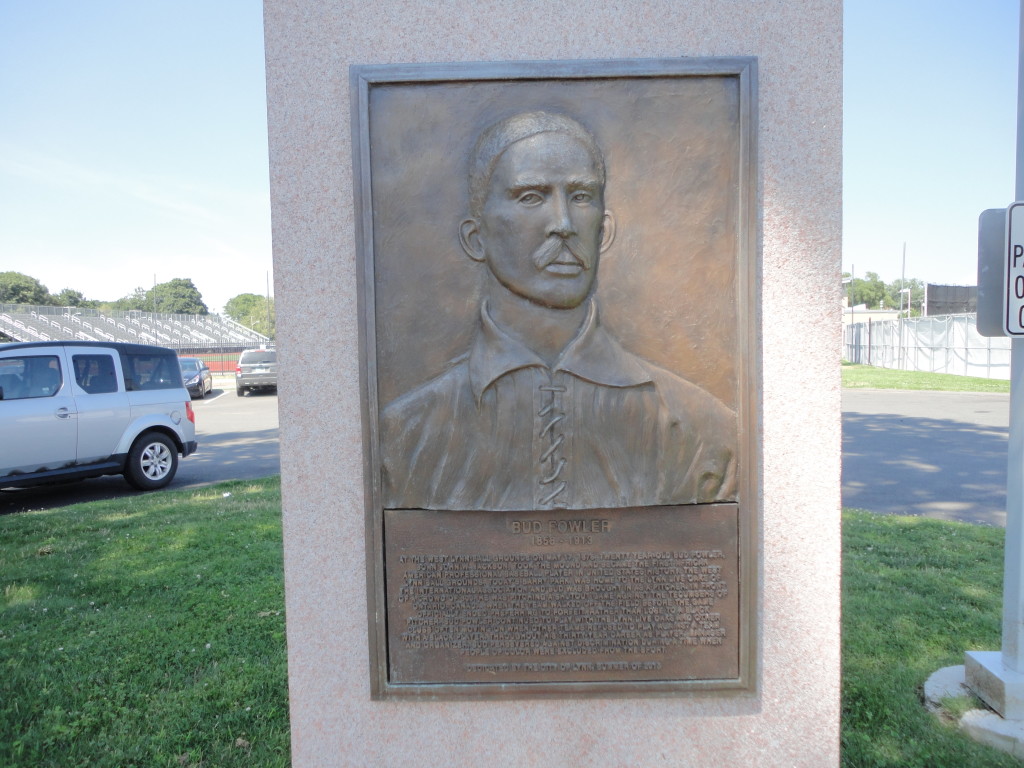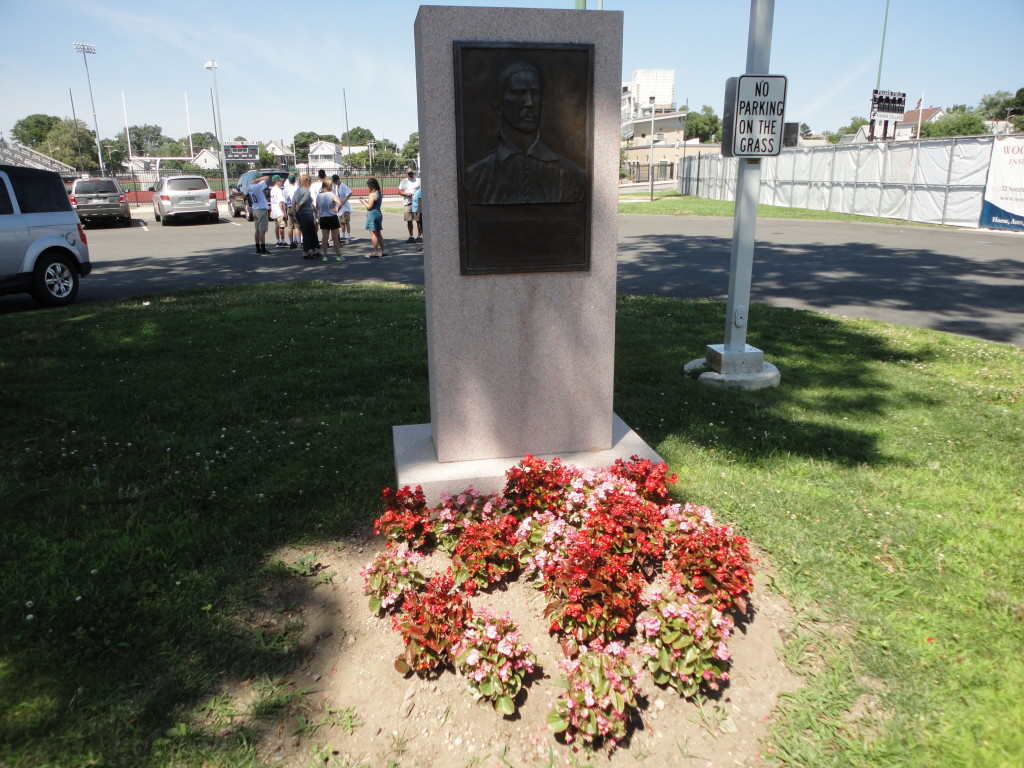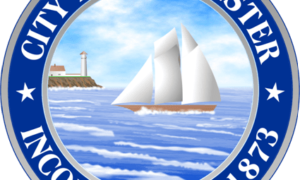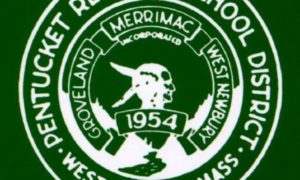LYNN – Bud Fowler has been called the first African American to play professional baseball. He played baseball in Lynn in 1878. Fowler was born before the start of the Civil War, living to the age of 55.(1858-1912) Lynn historian Julia Greene has conducted research on Fowler including newspaper stories and archives at the Baseball Hall of Fame in Cooperstown, NY. Greene teaches United States History at North Shore Community College. Fowler played for a Lynn team, the Live Oaks in 1878, that was sponsored by the Lynn Item newspaper.
Radio Interview – Julia Greene with Bill Newell
Bud Fowler – Two photos from Bud Fowler plaque outside of Fraser Field, Lynn. (Left Field Entrance)
Bud Fowler Paper 2013 – In this post we have included a few portions of Hugh MacDougall’s research paper from Cooperstown, NY.
Bud Fowler—A Knight of the Diamond; A Knight of the Razor
Hugh MacDougall, Cooperstown Village Historian
This year, 2013, marks the centennial of the death of John W. Jackson, better known by his playing name of Bud Fowler, who is generally considered as the first professional African-American baseball player. He grew up here in Cooperstown, and as you know, our Mayor will later today be formally designating a small and hitherto un-named street leading from Chestnut Street to Doubleday Field as “Fowler Way.”
Bud Fowler’s thirty-year career in baseball has been summarized in every recent book on early America baseball, and in many recent articles. Some of them cover his whole career, like that of the Baseball Biography Project of the Society of American Baseball Research[i] (or SABR), others concentrating on specific periods in his long and complicated life[ii]. The first book-length biography, Jeffrey Laing’s Bud Fowler: Baseball’s First Black Professional is scheduled to appear in July.[iii]
I shall not today try to go over Fowler’s baseball career in detail. Much of it has already been told, mostly from contemporary newspaper stories. Rather I want to consider Bud Fowler as the human being, whom we are honoring in Cooperstown today.
Baseball Beginnings
Sometime after 1870 Johnnie left home, and in 1877[i] we find him playing baseball in a Boston suburb for the amateur Chelsea Franklins, under the name of John Fowler. He pitched several games against the professional Lynn Live Oaks, a team belonging to the International Association, and The New York Clipper gave him his first review, writing of one game that “The pitching of both clubs was excellent.”
Why he left Cooperstown, what brought him to Chelsea, and why he permanently adopted the last name of Fowler, all remain mysteries today. Because John Fowler routinely addressed fellow players as “Bud,” he was given that nick name, and after about 1890, as in modern baseball writing, he was usually called just Bud Fowler. That is how he signed his public letters, and what I call him in this paper.
Then on April 24, 1878, Fowler pitched for a so-called “Pickup Nine” team, largely chosen from the Chelsea Franklins, against the professional Boston Red Caps—a National League team which would eventually become today’s Atlanta Braves. Its more experienced and older pitcher, Tommy Bond, was already a rising baseball star.[ii], Nevertheless, the amateurs defeated the Boston Professionals 2 to 1, with Fowler on the mound. Perhaps as a result, when the Lynn Live Oaks’ regular pitcher developed a lame arm,[iii] Fowler was asked to join that team as pitcher for at least three games. This made him the first African-American to play professional baseball in America—the title he has born ever since.
Local newspapers were impressed[iv]. The next year Fowler pitched for the Malden team of the Eastern Massachusetts league,[v] and then disappears from the papers for a time. His entry into baseball was written up in some detail last year, in SABR’s Nineteenth Century Notes, by his current biographer Jeff Laing.[vi]
Throughout his playing career Bud Fowler proved himself a gifted pitcher and catcher, and a superb second baseman. As Sporting Life put it in 1885:
“With his splendid abilities he would long ago have been on some good club had his color been white instead of black. Those who know say there is no better second baseman in the country; he is besides a good batter and fine base-runner.”[vii]
The list of white teams on which Fowler played includes, more or less in order, teams in Niles, Ohio; Keokuk, Iowa; Stillwater, Minnesota; Pueblo, Colorado; Topeka, Kansas; Binghamton, New York; Montpelier, Vermont; Laconia, New Hampshire, Crawfordville, Indiana; Santa Fe, New Mexico; Greenville, Michigan; Galesburg, Illinois; Burlington, Iowa; Lincoln, Nebraska; Findlay, Ohio, Lansing, Michigan, and Lima, Ohio.
For over twenty years Fowler’s skill as a baseball player gathered praise such as: “The pitching of Fowler was, as usual, very effective.”[viii] in 1878; “undoubtedly a phenomenon”[ix] 1n 1884; “He has an excellent record”[x] in 1885; “he…whom everybody delights to see play ball[xi]” in 1888; “Greenville’s lively colored second baseman”[xii] in 1889; “one of the best men in his position that can be found” [xiii] in 1891; “one of the oldest and best colored ball players in the United States”[xiv] in 1894; “the most famous colored player in balldom”[xv] in 1902; “one of the best all around base ball players that ever stepped in a diamond.”[xvi] in 1905; and finally “the greatest colored ball player who ever lived”[xvii] as he neared the end of his career in 1908.
But Bud Fowler was also a polite, courageous, and above all persistent human being both on and off the baseball field. It would be hard to find a baseball player of any time or place who devoted himself to America’s game more thoroughly or for a longer time.




